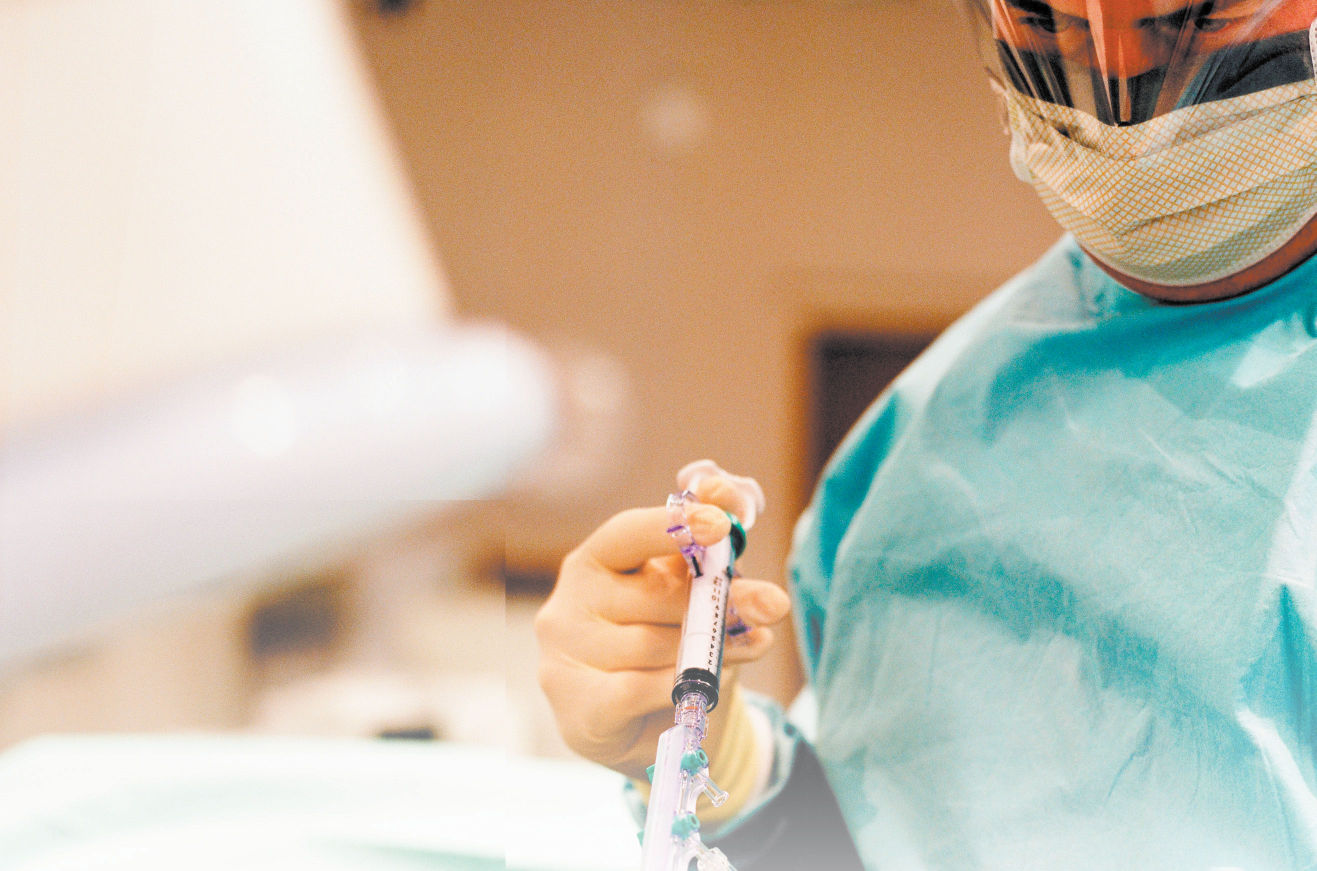
Matthews: Laf. schools improving options for college, career diploma
July 2, 2015
South Lafourche looking for baseball coach
July 2, 2015Local hospital administrators — in varying degrees – appear to wel coming the U.S. Supreme Court’s opinion last week of a key element of the Affordable Care Act, the law popularly known as “Obamcare.”
The high court ruled last week that people who obtain health insurance through the federally-run health care exchange rather than the individual exchanges set up by individual states are entitled to federal tax credits or subsidies easing the cost of premiums.
Louisiana is among the states that opted not to set up its own exchange
While noting that the controversial law “contains more than a few examples of inartful drafting” Chief Justice John Roberts wrote for a 6-3 majority that the law was passed to “improve health insurance markets, not to destroy them.”
“If at all possible, we must interpret the Act in a way that is consistent with the former, and avoids the latter,” Roberts wrote in the King vs. Burwell decision, stating that the law ” can fairly be read consistent with what we see as Congress’s plan, and that is the reading we adopt.”
Supporters of the law had said that more than 143,000 people in Louisiana would have had crippling increases in health insurance rates had the court not kept the current system intact. More uninsured people, some health advocates have advanced, would mean higher rates overall in the insurance market for all people.
Some estimates suggested that elimination of the federal exchange from the subsidy program would cause rises in rates from less than $100 per month cash layout to more than $600 per month for some families.
Phyllis Peoples, CEO of Terrebonne General Medical Center, acknowledged that had the justices had decided differently there could have been a profound effect for the people the hospital serves.
“It allows things to stay a little more status quo, allowing working families to keep this coverage and continue to give them access to care,” said Peoples, noting that the hospital has no idea what process patients have used to obtain their insurance, only whether they have it or not.
“If they took that way, payments subsidized to where families can get a tax credit of $323 per month, take that out and they can’t afford their insurance, and then they come to the hospital and they are not paying anything. This gives a security net to those who need that insurance.”
TGMC and other hospitals have long expressed concerns about the degree to which uninsured people who don’t qualify for Medicaid or Medicare have bills that don’t get paid. The hospitals receive some payments to offset the losses but never enough to fully compensate.
“We need a bigger buffer from uncompensated care,” said Peoples. She acknowledged that the availability of insurance for families who might otherwise have not been able to afford
it likely means fewer potentials for uncompensated care.
Tim Allen of the Ochsner Health System, which operates both Houma’s Leonard J. Chabert Medical Center under a state contract and St. Anne Hospital in Raceland, also gave a positive response to the court’s decision.
“Ochsner Health System respects and supports the Supreme Court’s decision today to allow many individuals and families who are enrolled in health plans through the federal exchange to continue to receive health insurance subsidies,” Allen said. “Our focus is and will remain on delivering the highest quality care to our patients. Affordable coverage for people who need assistance is a key component of providing access to care. We will continue to work with policymakers to expand coverage for patients and continue to deliver more value for both patients and employers.”
Toni Martinez, spokeswoman for Thibodaux Regional Medical Center, said the hospital is always concerned about “individuals and families who are uninsured or underinsured.”
“We provide high quality health care close to home,” Martinez said. “This requires highly trained physicians and staff, state-of-the-art technology, and modern up-to-date facilities. Thibodaux Regional is the highest quality, lowest cost provider in the region. As we continuously strive to deliver excellent health care, reasonable reimbursement remains important.”
Dr. Gary Wiltz, CEO of the Franklin-based Teche Action Clinic, which provides medical care to low-income people in Houma and Dulac, as well as other locations in Louisiana, said he was “elated and delighted.”
“It would have been the cruelest cut of all to give to someone and then take it away,” he said, referring to the insurance subsidy.” We have people now coming into our system that were previously undiagnosed with diabetes and hypertension that did not have a medical home. We have people with cancer treatments getting worked up that would have had insurance taken from them, and not been able to maintain.”
The case was brought by four Virginia plaintiffs who maintained that the law’s wording forbids the federal government from providing subsidies in states that do not have their own exchanges, 36 in all. The distinction, they said, was intended to encourage the creation of state exchanges.
As framed by Roberts, the case concerned the plaintiffs disputing whether Section 36B of the ACA “authorizes tax credits for individuals who enroll in an insurance plan through a Federal Exchange. Petitioners argue that a federal exchange is not an exchange established by the state…”
The Obama administration argued that, “an Exchange established by the State should be read to include Federal Exchanges.”
The Supreme Court, Roberts maintains in the decision, may, if a law is ambiguous, determine whether a federal agency’s own interpretation is reasonable.
The decision outlined clearly the potential effects of a finding that the federal exchange does not qualify for the subsidy through the tax credit.
“Today is a victory for hard working Americnas all across this country whose lives have become more secure in a changing economy because of this law,” Obama said in a statement delivered from the White House Rose Garden.
A major criticism of the law has been that for Americans who already had health insurance, privately or through employers, rates have gone up. Obamacare, they maintain has negatively altered the health insurance ecology.
Reaction to the decision was swift and sharp from officials in Louisiana, who have made no pretense of their disdain for the law, a centerpiece of the Obama presidential legacy, with some pledging for years now to replace it, re-write it or otherwise derail it.
U.S. Senator David Vitter, R-La. said the decision does not fix what he sees as chief deficiencies in the law.
Sen. Bill Cassidy, R-La., who is a medical doctor, said the decision does not derail plans by himself and other representatives to replace the law.
“The Supreme Court’s decision does not repeal the problems with Obamacare,” Cassidy said. “The fight to repeal and replace Obamacare to give patients the power must continue. Health insurance premiums are increasing as much as 60 percent per year, Americans are paying more for less, and view government mandates, penalties, and IRS coercion as un-American.”
The ACA’s requirement that all people in the U.S. be covered by health insurance under pain of an IRS penalty is particularly oppressive.
Cassidy is proposing a replacement law that would change that.
“As a doctor who has treated uninsured and underinsured patients for 25 years, I have worked with colleagues to craft the Patient Freedom Act,” Cassidy said.
Rep. Charles Boustany, R-Lafayette, also a medical doctor, said he had been working with other lawmakers for a solution to problems that might have been caused for people had the high court ruled differently. The alternative, he suggested, would have kept the medical care sky from falling had the ACA provision been eliminated.
Gov. Bobby Jindal said the law remains a failure because it does not sufficiently contain health care costs. Jindal, a staunch Obama opponent who announced his candidacy for the presidency last Wednesday, entering a crowded field of Republican contenders, said “the Supreme Court had its say; soon, the American people will have theirs. President Obama would like this to be the end of the debate on Obamacare, but it isn’t.”
“The debate will continue because the law has failed to accomplish its prime objective: Containing health care costs. Republicans must outline a clear and coherent vision for health care to win the trust of the American people to repeal Obamacare. And right now, I am the only candidate to put forward a comprehensive plan,” Jindal said. “Conservatives must be fearless in demanding that our leaders in Washington repeal and replace Obamacare with a plan that will lower health care costs and restore freedom.”
Jindal’s refusal to accept the expanded Medicaid program that is part of the act has drawn fire from many health care providers, who say the expansion would allow more people to receive medical care. Many see a potential for change once the term-limited presidential candidate leaves office.
“We have got miles to go before we sleep,” Wiltz said. “There is a whole population that could have qualified for Medicaid but we did not do expansion. That issue did not go away and we are hoping the next administration will embrace it, because it will help 300,000 people. That is another battle to be fought.”










